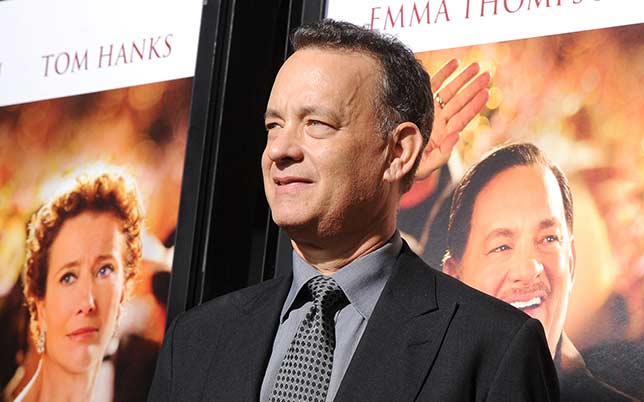
- Industry
Any Resemblance is Wholly Intentional
Among this year’s extraordinarily strong slate of Hollywood films, an unusually large number tell “true stories.” From 12 Years a Slave to Captain Phillips, from Lone Survivor to The Fifth Estate, 2013 certainly appears to have been the year of movies inspired by actual people and events. Some films tell the story of real figures as conduits to larger historical contexts. That’s the case for Steve McQueen’s 12 Years a Slave and Lee Daniels’ The Butler whose protagonists live through the pain of slavery and the racial segregation that have been integral to the American experience. Paul Greengrass’ story of the assault by Somali pirates on American freighter Maersk Alabama (and the abduction of its captain, Richard Phillips) plunges us in a history so recent as to still echo with the headlines of today’s global strife. Steven Frears’ Philomena recreates the poignantly personal story of Philomena Lee, an Irish woman desperately seeking the child she was forced to give up for adoption. Others like Dallas Buyers’ Club by Jean-Marc Valleé straddle the line between personal and historical with the true story of Texas HIV patient Ron Woodroof and his fight for access to experimental therapies against the backdrop of the national AIDS crisis. Significantly, perhaps inevitably, at least two films, David O. Russell’s American Hustle and Martin Scorsese’s Wolf of Wall Street, are real stories of hubris and malfeasance from the worlds of finance and politics, defining traits, it seems, of our time. So what accounts for this large number of reality-based dramas? Even Rush and Saving Mr. Banks have at their core the recreation of very real people (Niki Lauda and James Hunt in Ron Howard’s Formula 1 drama and Walt Disney in John Lee Hancock’s telling of the story behind the making of Mary Poppins). Some of this year’s films, like Fruitvale Station lead up to senseless tragedy, as do the two films which, in this 50th anniversary year, are devoted to the days leading up to JFK’s assassination. Speaking of political figures, Princess Di, Nelson Mandela and Winnie Mandela all merited biographies this year.
Some would suggest all this “reality” is a counterbalance to the giant fantasy tent poles studios keep churning out. The trend does beg the question of the role and responsibilities of “true stories.” If it’s true, like Washington Post publisher Philip Graham famously said, that journalism is the first draft of history, these films are offering a close second rewrite. And today, as Julian Assange recently pointed out to a group of HFPA journalists, feature films can shape the public’s worldview as much or more than the actual news. A film like Captain Phillips certainly conveys the sense of urgency and unpredictability of breaking news. Paul Greengrass is, after all, a director who has already devoted films to the Ulster “troubles” and to the 9/11 hijacking of United Flight 93. His star this time is Tom Hanks, an actor and producer and avowed history buff as his track record attests (he has produced documentary series on the 1960’s, the Space Program, and World War Two, plus both Parkland and Killing Kennedy). We asked him why the collective fascination with “true stories”….and when did his begin?
Tom Hanks: I don’t know how old I was when I discovered them…it might have been when I read Truman Capote’s In Cold Blood or the books of Leon Uris, in Junior High or High School, or when I started seeing really great documentaries like Thames TV’s The World at War in which the stuff really happened. It was human behavior, it had a different structure to it than fiction storytelling and it was more fascinating than anything I had ever come across. And I’m still that way: I read non-fiction for pleasure and when I find something that’s amazing I want to tell everyone about it.
So why bother with “true fiction”? Why not just stick to documentaries?
TH: There is a deeper connection you can make with the audience with a movie in which you are recreating stuff that happened, as opposed to a documentary in which you are culling through the information and the footage. By and large movies are glamorous things and they take whatever setting and story make it so incredibly glamorous that you want to be a part of it, so that you wish your life was as glamorous as that and if it’s something you are just making up well…that’s ok, because Casablanca was made up and it had this truism of the Nazi occupation of North Africa that is a backdrop for it, so even there, there is patina of history that makes it more investment-worthy, it makes it more substantial to me. The danger always is that what is a very complex issue can be turned into a very simplistic issue because a really good 2-hour movie has been made about it. Then you run into a danger in which the falseness of the simplicity overtakes how really human behavior is one damn thing after another, and that’s the risk you are taking whenever you are going to have that very dangerous crawl – “based on a true story” – at the beginning of a movie. Being “based on a true story” is very different from being a true story. Based on a true story is not “here are the facts.” It’s “here is an interpretation on the facts.”
Luca Celada